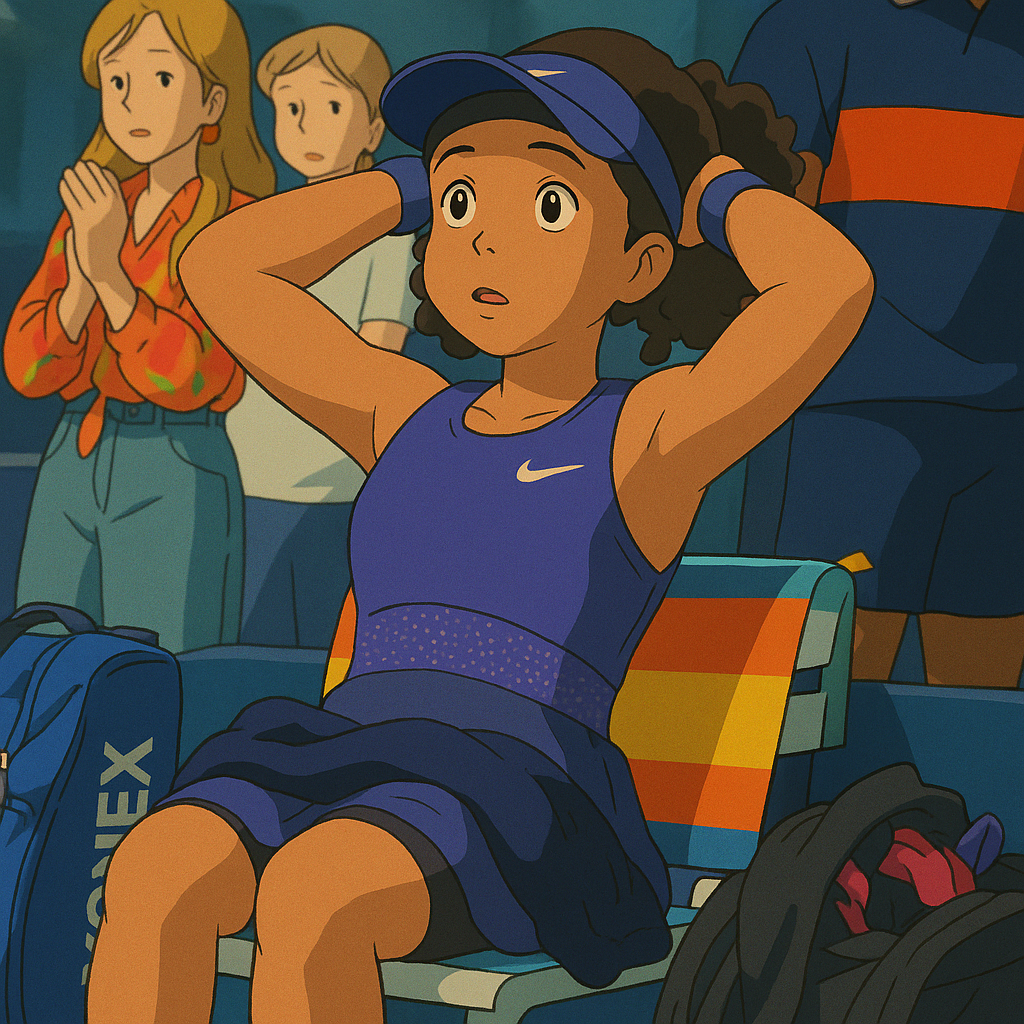NEW YORK — In a candid and revealing interview, renowned tennis coach Patrick Mouratoglou has opened up about his surprising split with four-time Grand Slam champion Naomi Osaka, making a poignant confession about his legendary former charge, Serena Williams. The split, which occurred just before Osaka’s resurgent run to the final of the Montreal Open and a strong showing at the US Open, has been a topic of intense speculation within the tennis world.
Mouratoglou, who guided Williams to 10 of her 23 major titles during their highly successful partnership, began working with Osaka in the summer of 2022. The collaboration was seen as a potential powerhouse union, pairing one of the game's greatest minds with one of its most explosive talents. However, after just under a year together, the partnership came to an amicable but definitive end in June 2023, a move that preceded Osaka's most convincing form since returning from maternity leave.
The "Sad" Confession About Serena Williams
In discussing the end of his time with Osaka, Mouratoglou drew a stark comparison to his relationship with Williams, offering a heartfelt and somewhat somber admission. He revealed that the deep, almost familial bond he shared with Serena was unique and ultimately unreplicable, even with a player of Osaka's caliber. "The connection I had with Serena, I don't think I will ever have this connection with any player," Mouratoglou confessed. "It's a connection that is beyond tennis. It's a human connection. It's a connection where we trusted each other 100% on and off the court, in any circumstance."
This profound level of trust, built over a decade, became the benchmark against which he measured all subsequent coaching relationships. He suggested that while his work with Osaka was professional and productive, it lacked that foundational, deeper connection that allowed for the kind of risk-taking and absolute belief that defined the Williams era.
Explaining the Split with Naomi Osaka
The official reason provided for the split was a mutual agreement that their "time together had come to an end." However, Mouratoglou provided more context, indicating that their goals and methods may have gradually diverged. He emphasized that Osaka’s desire to take more ownership of her career and game was a significant factor. "Naomi is at a stage in her career where she needs to feel free and in control of her choices and her career," he stated.
This need for autonomy is something Mouratoglou said he respected completely. He pointed out that the coaching dynamic is intensely personal and requires a perfect alignment of vision, communication style, and personality. For their partnership to reach its highest potential, both parties needed to be all-in, and it became apparent that this was no longer the case.
A Coaching Philosophy of Total Immersion
Mouratoglou's coaching style is famously all-encompassing. He doesn’t just manage forehands and backhands; he builds a comprehensive ecosystem around his players, focusing on:
- Technical Development: Fine-tuning every aspect of their stroke production.
- Physical Conditioning: Creating elite athletes capable of enduring the grueling season.
- Mental Fortitude: Perhaps his most noted focus, building championship mentality.
- Tactical Acumen: Developing game-specific strategies for every opponent.
This 360-degree approach requires a player to fully buy into his system and cede a significant amount of control. While this was a perfect fit for Williams, it appears that Osaka, at this juncture in her life and career, sought a different structure—one where she held the reins more tightly.
Osaka's Immediate Success Post-Split
The timing of the split raised eyebrows, but its immediate aftermath silenced many critics. Unburdened and self-coached, Osaka embarked on a stunning run at the National Bank Open in Montreal, defeating top-20 players like Qinwen Zheng and Ludmilla Samsonova before eventually falling to eventual champion Jessica Pegula in a tight three-set final. She carried this momentum into the US Open, showcasing a level of aggression and confidence that had been missing for some time.
This success story is not an indictment of Mouratoglou’s coaching but rather a validation of both his initial work and Osaka’s own intuition. He helped re-establish her fundamentals and confidence after a prolonged break, and she was then able to fly solo, implementing those lessons on her own terms. "Sometimes, the best thing a coach can do is know when to step away," Mouratoglou reflected.
The Unmatched Legacy of the Williams Partnership
Mouratoglou’s confession underscores the once-in-a-lifetime nature of his partnership with Serena Williams. Together, they dominated women's tennis for nearly a decade, a period that included:
- Four consecutive Olympic Gold Medals (2012 Singles, 2008, 2012, 2016 Doubles)
- 10 Grand Slam Singles Titles (from the 2012 Wimbledon to the 2017 Australian Open)
- A historic second "Serena Slam" in 2014-2015
- Regaining the World No. 1 ranking multiple times
That shared history, filled with unparalleled triumphs and very public setbacks, forged a bond that Mouratoglou suggests is unlikely to be duplicated. His honest admission is less a criticism of Osaka and more a tribute to the unique and extraordinary journey he shared with Williams. It sets a benchmark that informs his approach to every new collaboration, knowing that while success can be achieved, that specific, deep-rooted connection may be a thing of the past.
In the end, the split with Naomi Osaka appears to be a story of good timing and self-awareness from both parties. Mouratoglou provided a stable foundation during a transitional period, and Osaka knew when she was ready to build upon it herself. His sad confession about Serena Williams is a reminder that in sports, the greatest victories are often built on more than just technique and tactics; they are built on once-in-a-lifetime relationships.

